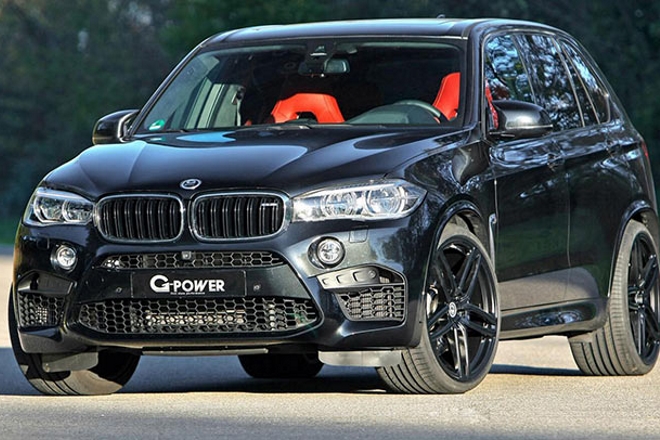Top Luxury SUV Deals: Choose Your Ideal Premium Ride
Explore practical strategies for finding the best luxury SUV deals, from certified pre-owned bargains to smart financing and negotiation tactics. Learn how to compare models, weigh features like performance, safety, and resale value, and secure the most cost-effective way to drive a high-end SUV.

Finding a luxury SUV that matches your lifestyle and budget takes a mix of research, patience, and strategy. High-end SUVs offer premium comfort, advanced tech, and strong performance, but sticker prices can be steep. The good news is there are many avenues to lower the cost without sacrificing the features you want. Below are practical steps and considerations to help you land the right luxury SUV deal.
Where to look for the best luxury SUV deals
Start by casting a wide net. Visit multiple dealerships and use comparison sites to check current pricing and incentives. Dealers often run promotions around holidays, model-year-end clearances, and during slow sales months — timing your purchase can yield significant savings. Don’t overlook certified pre-owned (CPO) programs: CPO luxury SUVs typically include extended warranties and rigorous inspections, giving you near-new reliability at a reduced price.
Online marketplaces and buyer-aggregator tools allow you to compare trims, packages, and dealer quotes quickly. Also consider demo cars, loaner vehicles, or manufacturer sales that include cashback offers or reduced-rate financing. If you’re comfortable with a little more risk, auctions and private sales can produce deals, but always get a professional inspection first.
Key criteria when evaluating a luxury SUV
Performance: Look beyond horsepower to how the vehicle actually drives — acceleration, handling, and whether all-wheel drive is standard or optional. Fuel economy and drivetrain efficiency matter if you plan on long commutes.
Comfort and space: Premium cabins vary widely. Assess seat comfort, usable cargo volume, and third-row practicality if you need it. High-end materials and noise insulation are central to the luxury experience.
Technology and safety: Advanced driver assistance systems, infotainment responsiveness, and smartphone integration should be evaluated in person. Some brands bundle crucial safety features into option packages, so be mindful when comparing trims.
Running costs: Factor in reliability, warranty coverage, maintenance schedules, and parts availability. High initial quality may reduce unexpected costs, but repairs on luxury brands can be pricier.
Resale and brand reputation: A strong resale value can offset a higher purchase price. Research depreciation trends for the brands you like and consider certified pre-owned warranties to protect value.
Financing options and lease considerations
Luxury SUVs are commonly financed or leased to make payments more manageable. Dealerships often advertise promotional low-interest financing or cash-back deals — read the fine print to understand the true cost over the loan term. Leasing can lower monthly payments and let you drive a new model more frequently, but it carries mileage limits and potential wear-and-tear charges.
When evaluating offers, calculate the total cost: down payment, monthly payments, term length, and final residual or balloon amounts. If financing, your credit score will strongly influence available rates. If leasing, compare mileage allowances and end-of-lease fees. Shop both manufacturer-provided financing and third-party lenders to ensure you get competitive terms.
Tips to negotiate the best price
Preparation is key. Know the market value of the exact model, trim, and options you want. Get multiple written quotes and use them to leverage better offers. Don’t focus only on monthly payments — negotiate the out-the-door price, fees, and any add-ons. Be willing to walk away if terms aren’t competitive; dealers frequently improve offers to close a sale.
Negotiate trade-in value separately from the new-car price to avoid confusion. Ask about dealer-installed options and decline anything you don’t need. Timing can help: the end of the month, quarter, or model year often brings more flexibility from sales teams.
| Model | Starting Price | Key Features | Fuel Economy (City/Highway) |
|---|---|---|---|
| BMW X5 | $59,400 | All-wheel drive, 335 hp engine, 12.3-inch infotainment display | 21/26 mpg |
| Mercedes-Benz GLE | $56,750 | MBUX infotainment system, 255 hp engine, advanced safety features | 19/26 mpg |
| Audi Q7 | $55,800 | Quattro all-wheel drive, 248 hp engine, virtual cockpit | 19/23 mpg |
| Lexus RX | $45,920 | Hybrid option available, 295 hp engine, Lexus Safety System+ 2.0 | 20/27 mpg |
| Porsche Cayenne | $69,000 | 335 hp engine, Porsche Active Suspension Management, 12.3-inch touchscreen | 19/23 mpg |
Prices, rates, or cost estimates mentioned in this article are based on the latest available information but may change over time. Independent research is advised before making financial decisions.
Final considerations before you buy
Balance the features you truly value with ownership costs. A luxury SUV’s worth lies in long-term satisfaction: driving dynamics, cabin quality, reliability, safety systems, and resale prospects. Always test-drive the specific trim and options you intend to purchase, and, for used or CPO vehicles, obtain a vehicle history report and an independent inspection.
Smart shopping — comparing dealers, timing purchases, exploring certified pre-owned inventory, and negotiating from an informed position — can make premium SUVs more attainable. With careful research and clear priorities, you can find a high-end SUV that delivers the comfort, performance, and technology you want without overspending.






